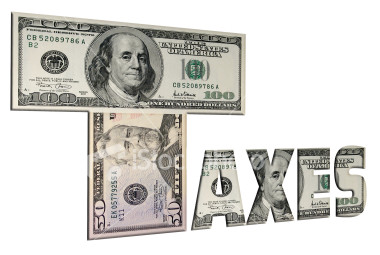Income Tax
CPAs Challenge the IRS on PTIN Fees
First, a federal appeals court invalidated most of the regulations imposing continuing education and other regulatory requirements imposed by the IRS on tax return preparers (Loving, et al v. IRS, Civil Action 12-385 (JEB), U.S. Dist. Ct. DC, 1/18/13). .
Sep. 11, 2014

First, a federal appeals court invalid most of the regulations imposing continuing education and other regulatory requirements imposed by the IRS on tax return preparers (Loving, et al v. IRS, Civil Action 12-385 (JEB), U.S. Dist. Ct. DC, 1/18/13). Now a couple of CPAs have gone to court over the Preparer Tax Identification Number (PTIN) fees being charged to practitioners (Steele, Montrois, et al v. United States of America, Civil Action FILE No. 1:cv-14-152, U.S. Dist. Ct. D.C., ).
[Related Coverage: Tax Professionals Sue the IRS to End PTIN Fees]
The individual stakes in the new case aren’t particularly high, but the principles involved are weighty.
Back in 2010, the IRS began requiring tax return preparers to obtain PTINs when filing returns on behalf of taxpayers. It broadened the program in 2011 to incorporate competency and registration rules for preparers other than CPAs, enrolled agents (EAs) and tax attorneys. But the D.C. court ruled that the IRS didn’t have the authority to impose those requirements. Subsequently, the IRS formulated a voluntary program that has also met with legal challenges.
In the new class action lawsuit, the plaintiffs are seeking to (1) recover annual payments designated as user fees to receive and renew a PTIN for returns prepared by paid tax return preparers for others and (2) to prohibit the IRS from charging such fees in the future. This legal action was initiated on behalf of more than 700,000 tax return preparers. Some estimates put the number of potential litigants as high as 1.2 million.
The two CPAs representing this population – Adam Steele of Minnesota and Brittany Montrois of Georgia – contend that the amounts charged for PTINs are unlawful because such fees are permitted only to certify a special benefit. They maintain that the fee should be limited to the out-of-pocket cost to the IRS of either the $14.25 it pays to a third party to have the number provided or $13 for renewing the number. Currently, the IRS charges $64.25 for a new PTIN and $63 for renewals.
The IRS has claimed that the fees are needed to cover administrative expenses such as sending registration cards to preparers, forms and instructions and other related expenses. But Steele and Montrois point out no registration cards have been distributed thus far and the IRS doesn’t normally charge for issuing tax forms and guidance.
In addition, the two CPAs have asked the court to prevent the IRS for fishing for more information when practitioners file to obtain a PTIN, citing privacy issues. They want to limit the required information to just your name, address and Social Security number. The current requirements include the preparer’s birthdate, email address, any felony convictions, professional credentials and whether he or she is supervised, self-employed or the owner of a tax preparation business. Stay tuned for more developments.
